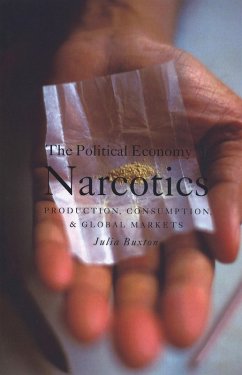This book explores the origins, history and organisation of the international system of narcotic drug control with a specific focus on heroin, cannabis and cocaine. It argues that the century-long quest to eliminate the production, trade in and use of narcotic drugs has been a profound failure. The statistics produced by the international and domestic narcotic drug control agencies point to a sustained expansion of the drug trade, despite the imposition of harsh criminal sanctions against those engaged, as producers, traffickers or consumers, in the narcotic drugs market.
The roots of this major international policy failure are traced back to the outdated ideology of prohibition, which is shown to be counterproductive, utopian and a fundamentally inadequate basis for narcotic drug policy in the twenty-first century. Prohibition, championed by many US policy makers, has left the international community poorly positioned to confront those changes to the drug trade and drug markets that have resulted from globalisation. Moreover, prohibition based approaches are causing more harm than good, as is demonstrated through reference to issues such as HIV/AIDS, the environment, conflict, development and social justice.
As the drug control system approaches its centenary, there are signs that the global consensus on narcotic drug prohibition is fracturing. Some European and South American states are pushing for a new approach based on regulation, decriminalisation and harm reduction. But those seeking to revise prohibition strategies faces entrenched resistance, primarily by the U.S. This important text argues that successive American governments have pursued a contradictory approach; acting decisively against the narcotic drug trade at home and abroad, while at the same time working with drug traffickers and producer states when it is in America's strategic interest. As a result, US policy approaches emerge as a decisive factor in accounting for the failure of prohibition.
The roots of this major international policy failure are traced back to the outdated ideology of prohibition, which is shown to be counterproductive, utopian and a fundamentally inadequate basis for narcotic drug policy in the twenty-first century. Prohibition, championed by many US policy makers, has left the international community poorly positioned to confront those changes to the drug trade and drug markets that have resulted from globalisation. Moreover, prohibition based approaches are causing more harm than good, as is demonstrated through reference to issues such as HIV/AIDS, the environment, conflict, development and social justice.
As the drug control system approaches its centenary, there are signs that the global consensus on narcotic drug prohibition is fracturing. Some European and South American states are pushing for a new approach based on regulation, decriminalisation and harm reduction. But those seeking to revise prohibition strategies faces entrenched resistance, primarily by the U.S. This important text argues that successive American governments have pursued a contradictory approach; acting decisively against the narcotic drug trade at home and abroad, while at the same time working with drug traffickers and producer states when it is in America's strategic interest. As a result, US policy approaches emerge as a decisive factor in accounting for the failure of prohibition.









